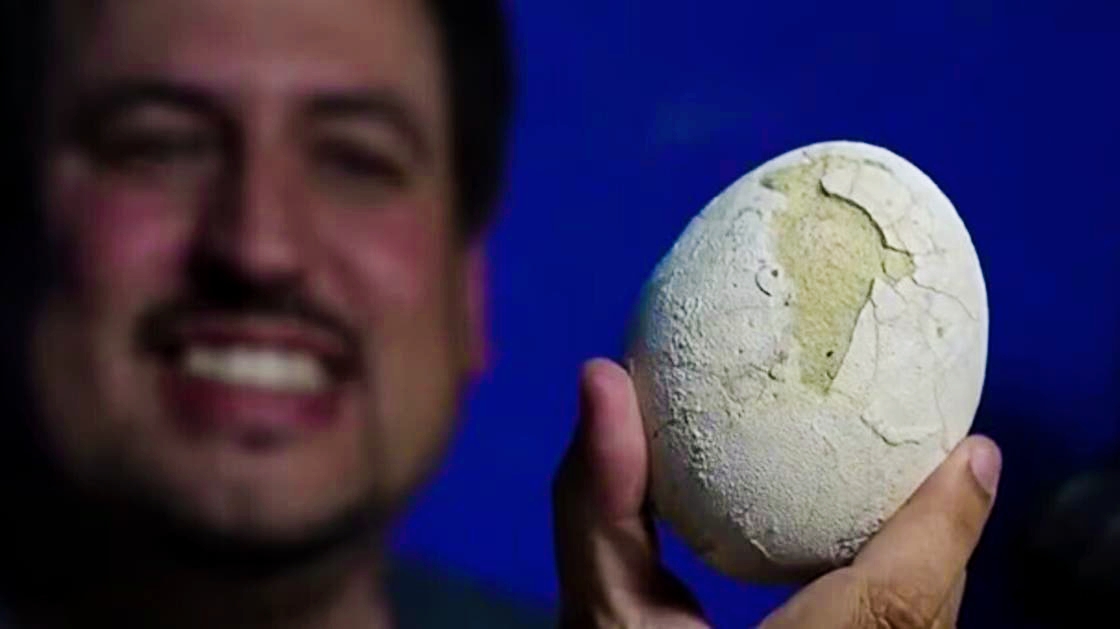Scientists in Argentina Discover Rare Dinosaur Egg Estimated to Be 70 Million Years Old

In a stunning discovery that has amazed scientists around the world, a team of researchers in the Río Negro region of Patagonia, southern Argentina, found a fully preserved dinosaur egg, estimated to be around 70 million years old.
This egg was found in an exceptional state of preservation, making it one of the rarest discoveries of its kind in the world.
* Egg Similar to Ostrich Eggs Belonging to "Bonapartenykus"
The egg shows a shape similar to that of modern ostrich eggs, and scientists believe it belongs to a small dinosaur of the genus Bonapartenykus, a type of carnivorous dinosaur that lived in the late Cretaceous period.
It is believed that this dinosaur was small in size, which supports the hypothesis that the egg may contain fossilized remains of an embryo.
* Exceptional Preservation Raises Questions
This discovery is considered one of the rarest cases of dinosaur egg preservation, especially since carnivorous dinosaur eggs are very rare due to the fragility of their shells, which resemble those of modern bird eggs, making them susceptible to damage over millions of years.
Gonzalo Muñoz, a researcher at the Bernardo Rivadavia Museum of Natural Sciences in Argentina, said:
"It was completely surprising. Finding dinosaur fossils is not rare, but finding an egg preserved in such a complete condition is extremely exceptional."
* Plans for In-Depth Studies
The research team that discovered the egg intends to conduct advanced imaging examinations to confirm the presence of biological materials inside it.
In an important step, the egg will be transferred to the Natural Science Museum in Argentina for detailed studies that may reveal more secrets about the evolution of dinosaurs and the mechanisms of their egg hatching.
* Excavation Site Reshapes the History of the Region
The discovery of the egg coincided with the finding of mammal teeth and vertebrae of snakes at the same site, indicating that this area was once a fertile nesting ground in prehistoric times.
This discovery opens new doors to understanding the dinosaur environment in that time period.
* Discovery Video Impresses
In a video posted on social media, the moment of discovering the egg on the surface of the ground amidst the sand can be seen, where its state of preservation appeared to be incredibly impressive.
The mission team added in their comment: "This may be the first discovery of its kind in South America. The discovered egg is over 70 million years old, and we also found a complete set of eggs."
This discovery marks a turning point in the study of dinosaurs and their evolution, serving as a new window for paleontologists to understand how life evolved in the late Cretaceous period.